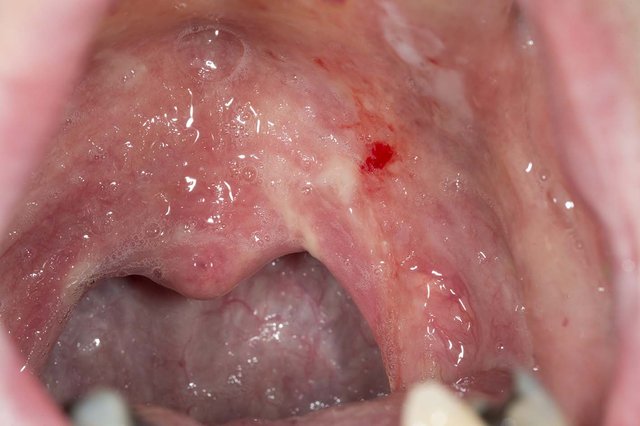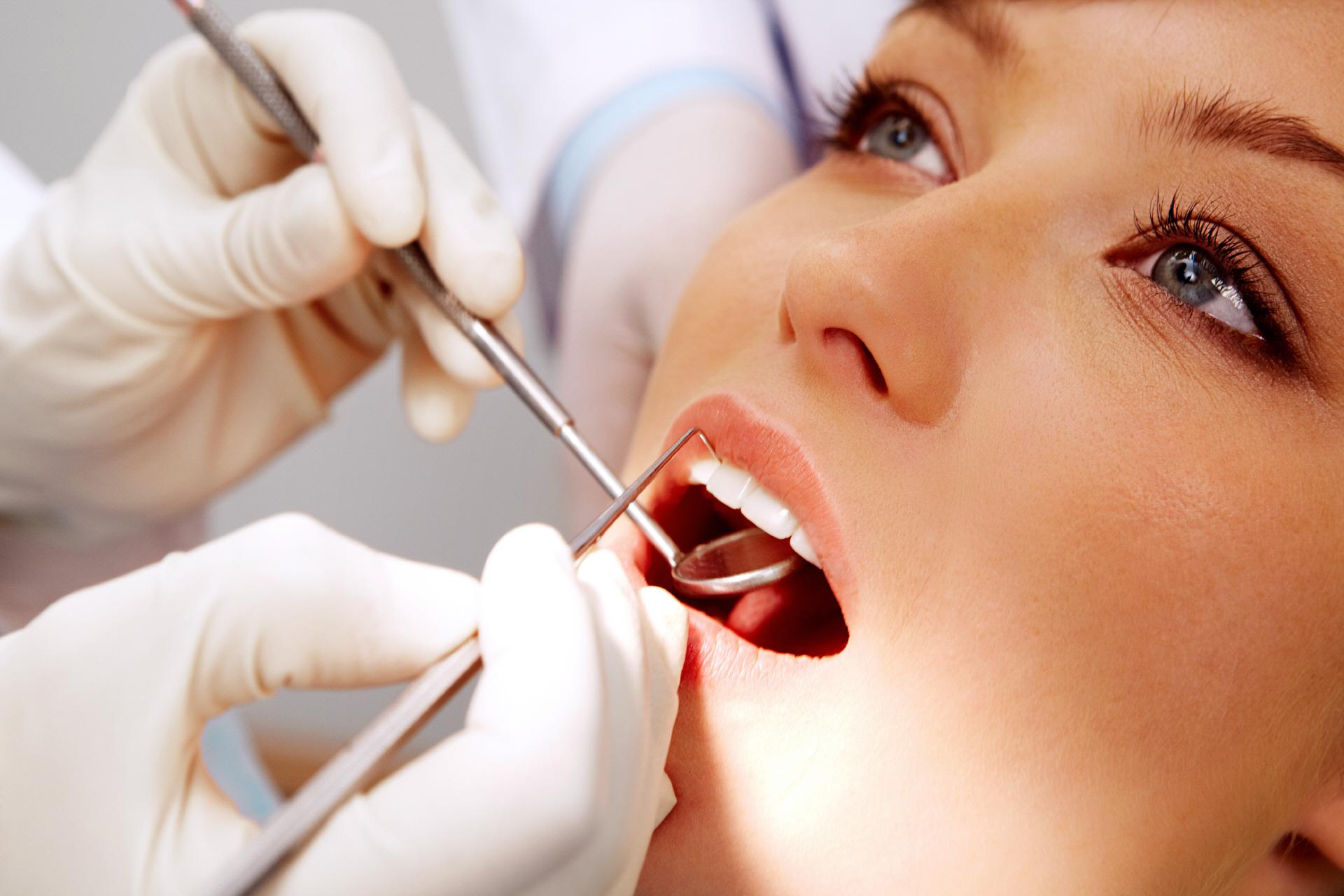Table of Contents
Oral thrush, also called oral candidiasis, is an inflammation of the mucous membranes of your mouth due to accumulation of the fungus Candida albicans. It is characterized by white patches on the tongue, cheeks, palate, gums and / or the edge of your lips. In sesrieus oral thrush, the inflammation can be painful and associated with bleeding.
The infection is most common in newborns, infants and elderly who wear dentures. Thrush tends also to develop in immunocompromised individuals – people undergoing chemotherapy, taking antibiotics or steroids, or those with chronic that can weaken the immune system: HIV/AIDS, diabetes, etc.
Oral Thrush Symptoms and Signs
 Ar early stage, trush is manifested by a diffuse inflammation of the lining of the mouth; the lining becomes red, dry and crushing. Then the inside of the cheeks, tongue and pharynx are overlapped with a whitish coating similar to milk curds. In some cases, you may have difficulty to swallow. In children, the disease can spread to skin folds and nails. The infection can also cause discomfort when sucking and/or difficulty swallowing.
Ar early stage, trush is manifested by a diffuse inflammation of the lining of the mouth; the lining becomes red, dry and crushing. Then the inside of the cheeks, tongue and pharynx are overlapped with a whitish coating similar to milk curds. In some cases, you may have difficulty to swallow. In children, the disease can spread to skin folds and nails. The infection can also cause discomfort when sucking and/or difficulty swallowing.
Thrush can infect the entire digestive tract, causing diarrhea and then vomiting. In severe cases, redness may appear around the anus, the genitals and groin (Vaginal candidiasis).
Oral Thrush Causes and Risk Factors
In most people, candida albicans live harmlessly on your skin, in your mouth, in gastrointestinal tract, and the genitals. Certain circumstances, however, can cause those microorganisms to pathogenically increase and lead to pain and inflammation. The factors often lead to uncontrolled development candida albicans include:
Medications – the control of albicans is assured by the immune system. Steroids and some drug therapies such as chemotherapy and radiotherapy destroy the white blood cells and weaken the immune system; this disorder can also lead to the development of thrush.
Corticosteroids and certain drugs used to treat asthma attacks and chronic lung diseases affect the oral environment and cause uncontrolled growth of candida albicans.
Antibiotic – candida albicans live naturally on the skin, intestines and the vagina. Their growth is aaured by other non-pathogenic bacteria. Constant use of antibiotics can kill those harmless bacteria and facilitates the proliferation of pathogenic bacteria such as candida albicans.
Diseases – certain medical conditions such as cancer and HIV / AIDS tend to weaken the immune system, which can lead to oral thrush. Oral thrush may also develop in people with diabetes.
Other triggers of oral thrush include stress, unhealthy diet and smoking.
Oral Thrush Diagnosis
 First, your doctor will ask you questions about your lifestyle, diet, and medical condition – whether you have diabetes, cancer, AIDS or other chronic conditions. He/she may also ask you if you are taking antibiotics and other drugs that may weaken your immune system and promote the proliferation of Candida albicans. The following tests may also be recommended to confirm the diagnosis:
First, your doctor will ask you questions about your lifestyle, diet, and medical condition – whether you have diabetes, cancer, AIDS or other chronic conditions. He/she may also ask you if you are taking antibiotics and other drugs that may weaken your immune system and promote the proliferation of Candida albicans. The following tests may also be recommended to confirm the diagnosis:
Throat culture – a throat swab culture is a laboratory test done to isolate and identify the bacteria or fungi that cause the infection.
Endoscopic examination – during this procedure, your physician uses a small fiberoptic instrument called telescope to examine your esophagus, stomach and duodenum. Computed tomography (CT, CAT) scan is used to make an image on a monitor screen to help the specialist move the camera precisely. The exam may last up to 1 hour.
Barium swallow – this medical imaging procedure allows your health care provider to examine your upper gastrointestinal tract and detect presence of candida albicans. You will be asked to swallow a barium sulfate (a thick, chalky liquid that is visible to x-rays) to enable the hollow structure to be imaged.
Oral Thrush Treatment (Medical)
Although treatment varies depending on age and other factors, thrush is not very difficult to be controlled, provided that you follow the treatment as prescribed by your doctor. Treatment is mainly based on antibiotherapy associated, most of the times, with a course of probiotics, dietary supplements of live microorganisms that help maintain a healthy intestinal by controlling harmful bacteria and other harmful substances.
Treatment may also includelocal applications of bicarbonate and isotonic serum (same molecular concentration as blood plasma) or antifungal drugs. In cases of damage to the esophagus, the applications can be associated with a systematic treatment taken orally.
Oral Thrush Treatment (Alternative)
- Infuse 15 g of sage officinal for ten minutes in a liter of boiling water. Use as mouthwash.
- Dilute 6 drops of essential oil of Tea Tree in a glass of water; use it as mouthwash four times a day.
- Limit or avoid consumption of alcohol, yeast products and sugar products.



